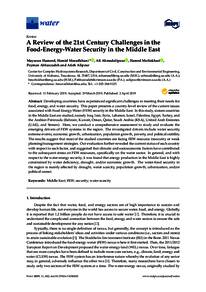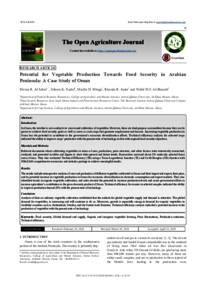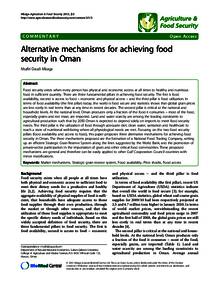Document
A review of the 21st century challenges in the food-energy-water security in the Middle East.
Identifier
DOI: 10.3390/w11040682
Source
Water (Switzerland). v. 11, 4, 682
Contributors
Moradkhani, Hamid., Author
Ahmadalipour, Ali., Author
Moftakhari, Hamed., Author
Abbaszadeh, Peyman., Author
Alipour, Atieh., Author
Country
Switzerland
Publisher
MDPI AG.
Gregorian
2019-04-01
Language
English
Subject
English abstract
Developing countries have experienced significant challenges in meeting their needs for food, energy, and water security. This paper presents a country-level review of the current issues associated with Food-Energy-Water (FEW) security in the Middle East. In this study, sixteen countries in the Middle East are studied, namely Iraq, Iran, Syria, Lebanon, Israel, Palestine, Egypt, Turkey, and the Arabian Peninsula (Bahrain, Kuwait, Oman, Qatar, Saudi Arabia (KSA), United Arab Emirates (UAE), and Yemen). Here, we conduct a comprehensive assessment to study and evaluate the emerging drivers of FEW systems in the region. The investigated drivers include water security, extreme events, economic growth, urbanization, population growth, poverty, and political stability. The results suggest that most of the studied countries are facing FEW resource insecurity or weak planning/management strategies. Our evaluation further revealed the current status of each country with respect to each factor, and suggested that climatic and socioeconomic factors have contributed to the subsequent stress on FEW resources, specifically on the water sector. In general, and with respect to the water-energy security, it was found that energy production in the Middle East is highly constrained by water deficiency, drought, and/or economic growth. The water-food security in the region is mainly affected by drought, water scarcity, population growth, urbanization, and/or political unrest.
ISSN
2073-4441
Resource URL
Category
Journal articles



